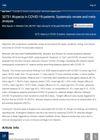 September 2022 in “Journal of The American Academy of Dermatology”
September 2022 in “Journal of The American Academy of Dermatology” Different types of hair loss are linked to COVID-19, with some types possibly increasing risk of getting the virus, while others may be triggered or worsened by the virus.
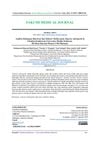 July 2022 in “Fakumi Medical Journal”
July 2022 in “Fakumi Medical Journal” There is a significant relationship between androgenic alopecia, hypertension, and diabetes mellitus.
 July 2022 in “The journal of investigative dermatology/Journal of investigative dermatology”
July 2022 in “The journal of investigative dermatology/Journal of investigative dermatology” Scientists created a detailed map of gene activity in different parts of human hair follicles.
 February 2022 in “Programa de Iniciação Científica - PIC/UniCEUB”
February 2022 in “Programa de Iniciação Científica - PIC/UniCEUB” Both Minoxidil and PRP are effective for male pattern baldness treatment.
 November 2021 in “Research, Society and Development”
November 2021 in “Research, Society and Development” Individualized treatment and psychological support are crucial for alopecia.
 November 2021 in “CRC Press eBooks”
November 2021 in “CRC Press eBooks” Anagen effluvium is a reversible condition causing sudden hair loss, often due to chemotherapy or head radiation.
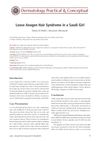 October 2021 in “Dermatology practical & conceptual”
October 2021 in “Dermatology practical & conceptual” A Saudi girl was diagnosed with Loose Anagen Hair Syndrome, a rare condition causing easy hair loss without scarring.
 April 2021 in “Current Topics in Nutraceutical Research”
April 2021 in “Current Topics in Nutraceutical Research” Citron seed oil may help prevent or treat hair loss by promoting hair growth and increasing hair density.
 April 2021 in “Journal of Investigative Dermatology”
April 2021 in “Journal of Investigative Dermatology” Leontopodium alpinum extract may help reduce hair shedding by keeping hair in the growth phase longer.
February 2021 in “PubMed” A 2-year-old girl had a hair disorder not shared by her identical twin.
January 2021 in “Dermatology online journal” One twin girl has Loose anagen syndrome with poorly anchored hair, diagnosed with a simple hair pull test, while her identical twin does not have the condition.
 April 2020 in “Estudo & Debate”
April 2020 in “Estudo & Debate” The compounding pharmacy in Venâncio Aires generally follows good practices, with only the Paracetamol sample showing significant microbial growth.
Taking too much biotin can mess up blood test results, which might lead to wrong diagnoses and treatments.
Loose anagen syndrome causes easy hair shedding in children, often resolving on its own.
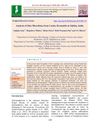 August 2019 in “International journal of current microbiology and applied sciences”
August 2019 in “International journal of current microbiology and applied sciences” Young dogs in Odisha with dermatitis are most often infected by Microsporum fungus, and Miconazole is the most effective treatment.
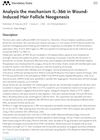
IL-36α helps in growing new hair follicles when healing wounds, potentially aiding in hair growth.

Trichosol™ with Minoxidil can boost hair growth by 20%.
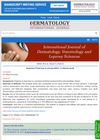 January 2019 in “International journal of dermatology, venereology and leprosy sciences”
January 2019 in “International journal of dermatology, venereology and leprosy sciences” Hair loss in young adults is common and varies in pattern, cause, and type.
 March 2018 in “Gazi medical journal”
March 2018 in “Gazi medical journal” Adults with Beta Thalassemia Major are more likely to have skin, hair, and nail disorders.
January 2018 in “Medicinski pregled” Using high doses and multiple drugs with steroids is risky and should be prevented.
September 2017 in “Springer eBooks” Certain supplements, like whey protein isolate and growth hormones, can worsen hair loss.
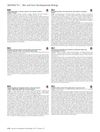 April 2017 in “Journal of Investigative Dermatology”
April 2017 in “Journal of Investigative Dermatology” Blocking JAK-STAT5 signaling in mice leads to hair growth.

Platelet-Rich Plasma treatment is effective for hair loss and chronic ulcers.
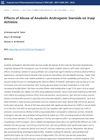 March 2017 in “Iraqi Journal of Pharmaceutical Sciences”
March 2017 in “Iraqi Journal of Pharmaceutical Sciences” Abuse of anabolic steroids in Iraqi athletes leads to negative effects on hormones, liver and kidney function, blood sugar, and cholesterol levels.

Better models and evaluation methods for alopecia areata are needed.
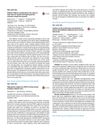 September 2016 in “Journal of dermatological science”
September 2016 in “Journal of dermatological science” Epidermal stem cells use integrin β1 and α6 as markers and CD271+ cells help maintain skin health and heal wounds.
 April 2016 in “Journal of The American Academy of Dermatology”
April 2016 in “Journal of The American Academy of Dermatology” A botanical lotion can increase scalp collagen and extend hair growth phase, potentially improving hair thinning issues.
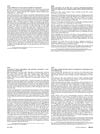 April 2016 in “Journal of The American Academy of Dermatology”
April 2016 in “Journal of The American Academy of Dermatology” A child on life support experienced rapid hair loss due to severe illness affecting hair growth.
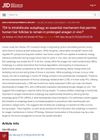 April 2016 in “Journal of Investigative Dermatology”
April 2016 in “Journal of Investigative Dermatology” Autophagy, a cell recycling process, is crucial for prolonged hair growth and could be a potential target for treating hair growth disorders.

Lichen planopilaris and frontal fibrosing alopecia are likely the same disease with different clinical appearances.
























